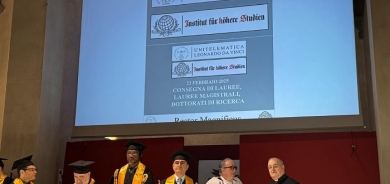Iraq Pushes for Termination of UNAMI Amid Concerns Over Democratic Stability

The Iraqi government has reiterated its demand to terminate the United Nations Assistance Mission for Iraq (UNAMI), arguing that the mission has outlived its usefulness and failed to fulfill its objectives. However, experts warn that ending the mission could undermine Iraq's democratic framework and political stability.
Government’s Position
In a letter to the UN Security Council in May 2024, Iraqi Prime Minister Mohammed Shia al-Sudani cited improvements in Iraq’s political and security stability as justification for ending UNAMI’s mandate. During discussions with former UN Special Representative Jeanine Hennis-Plasschaert, al-Sudani emphasized Iraq’s progress in governance and security as evidence that the mission’s presence is no longer necessary.
“The Iraqi government considers that it gave the United Nations greater powers than it should have, and now it strives for a way to reject its presence,” political analyst Abbas al-Jubouri told Kurdistan24’s Seif Ali.
Al-Jubouri also suggested that the Security Council could address UNAMI’s shortcomings by reforming the mission or changing its leadership, rather than terminating its presence entirely.
UN Security Council Decision
Despite Iraq’s push, the UN Security Council voted unanimously on May 31, 2024, to extend UNAMI’s mandate for a final 19-month period, ending on January 31, 2025. The mission, established in 2003 after the fall of Saddam Hussein’s regime, has played a key role in facilitating political dialogue, national reconciliation, elections, and security sector reform.
A strategic review conducted in 2023 recommended gradually transferring the mission’s tasks to Iraqi authorities.
Impacts on Democracy and Civil Society
Observers warn that UNAMI’s withdrawal could have significant repercussions. Salah Boushi, a political affairs expert, argued that the mission’s presence symbolizes Iraq’s commitment to democratic values and international cooperation.
“Ending the mission may cast a negative light on Iraq and disrupt political stability,” Boushi stated.
Civil society organizations have also expressed concern that terminating UNAMI’s mandate could restrict their operations and weaken democratic practices within Iraq.
Balancing Criticism with Reform
While critics acknowledge shortcomings in UNAMI’s performance, they caution that complete removal of the mission could be detrimental. Analysts suggest reforming its mandate or leadership as a middle ground.
“The Security Council could consider addressing the mission’s weaknesses by either changing its leadership or altering its mandate,” al-Jubouri added.
Iraq’s Democratic Path at Stake
As the January 2025 deadline for UNAMI’s exit approaches, debates continue within Iraqi civil society over the long-term consequences. While the government insists that the mission’s time has passed, experts argue that its absence could challenge Iraq’s democratic trajectory and international standing.
The decision reflects a broader tension between Iraq’s desire for self-reliance and the need for continued international support in navigating its post-conflict recovery.












